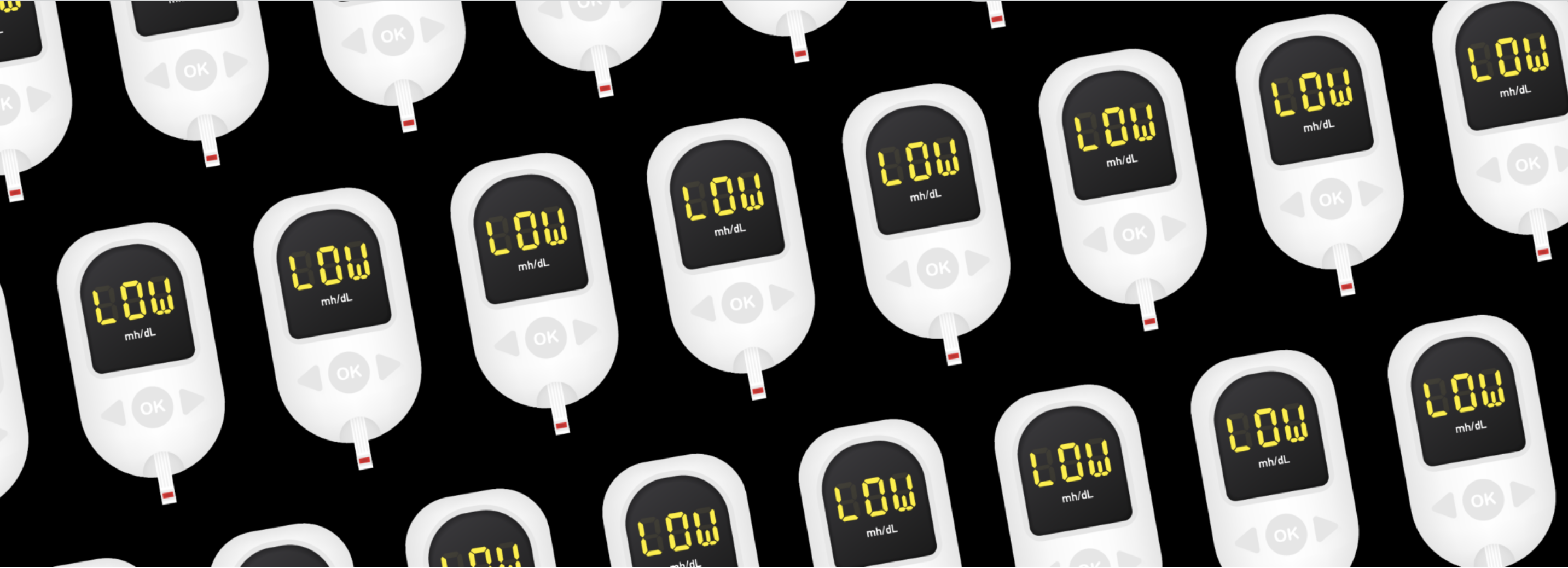Are People with Type 1 Diabetes Immunocompromised?
Written by: Benaroya Research Institute at Virginia Mason
5 minute read
July 28, 2021
Editor’s Note:A version of this article first appeared at BenaroyaResearch.org from Benaroya Research Institute at Virginia Mason (BRI). BRI, a world-renowned biomedical research institute focusing on the immune system, is also a clinical center for type 1 Diabetes TrialNet, an international network that conducts clinical studies that evaluate new approaches to preventing, delaying and reversing the progression of type 1 diabetes.
It’s important to remember that having well-controlled diabetes alone does not seem to put anyone more at risk for contracting the novel coronavirus, but diabetes care itself is made far more complicated after contracting COVID-19. That’s why we encourage everyone with diabetes to get vaccinated, if your healthcare provider recommends it, as soon as possible.
Words like “immunocompromised” are broad by design: They’re meant to encompass how a wide variety of conditions impact the immune system. But when we see headlines like “COVID-19 vaccines might not work as well for people who are immunocompromised” it’s hard to know exactly what that means and if it applies to you.
We recently spoke with BRI immunologist Bernard Khor, MD, PhD. He provided context and clarity for people with immune-related conditions and their loved ones.
Does having an autoimmune disease mean you’re immunocompromised? Are people with Type 1 diabetes immunocompromised?
The term “immunocompromised” typically implies that your immune system is weaker than it should be. People with autoimmune diseases like type 1 diabetes aren’t typically considered immunocompromised, unless they take certain medications that slow down their immune system.
“The connotation for immunocompromised is that the immune function is reduced so you are more prone to infection,” Dr. Khor says. “Typical autoimmunity—say someone with type 1 diabetes (T1D)—is not necessarily associated with a highly increased risk of all infections or ineffective vaccine response.”
Dr. Khor explained that “immune dysregulated” could be a better term for most people with autoimmune disease. That means that the immune system isn’t quite working right, but that doesn’t necessarily impact your ability to fight off infection or respond to a vaccine.
What does immunocompromised mean?
Immunocompromised broadly means that your immune system isn’t working properly, typically in terms of its ability to fight off infection. This could happen for a number of reasons. As people age, their immune system gets weaker, affecting their ability to fight off infections. Immunodeficiencies and medications to suppress the immune system (often called immunomodulatory) can also compromise the immune system.
What is immunodeficient/immunodeficiency?
Immunodeficiency means that your immune system isn’t working properly, typically because important components (like cells) either aren’t present in adequate numbers or aren’t working properly. This can leave a person’s immune system in a weakened state, where it’s not as effective at fighting off bacteria or viruses.
“One well-understood example is people with AIDS (caused by uncontrolled HIV infection),” Dr. Khor says. “You see immune problems caused by the absence of important cells like T cells. There’s a physical deficiency that you can measure.”
I have read that some immunocompromised people may not mount a strong immune response to vaccines. Is this true? What does this mean?
In general, vaccines help train your immune system to fight off diseases. They do this by teaching the immune system to recognize an invader (say COVID-19) and attack if they see it, for example by making tiny proteins called antibodies. A “strong immune response” means the immune system has the right players in place, they know the game plan, and they’re strong enough to beat the other team.
But some people’s immune systems might have trouble training those proteins: Immunosuppressive drugs might slow some players down. With immunodeficiencies like HIV, people may be missing some players altogether.
“If everyone is moving slower or if you’re missing players, that might make it difficult to score a touchdown,” Dr. Khor says. “If the immune system is suppressed or missing certain components, it’s hard for the immune system to create the antibodies to fight off a virus.”
Most people with autoimmune diseases can make a protective response to vaccines. However, some therapies may change the body’s ability to respond to vaccination, including COVID-19 vaccination. BRI scientists are working hard to understand which medications impact the ability to respond to immunization, and how big of an impact this may have on infection risk.
The CDC recommends getting vaccinated as soon as possible and talking to your healthcare provider if you have questions about COVID-19 vaccination and underlying conditions.
How can we protect our loved ones who are immunocompromised and who may not be protected by the COVID-19 vaccine?
First, Dr. Khor recommends that the loved ones of immunocompromised people get vaccinated. “The more people are vaccinated, the fewer places the virus can hide, live, mutate and spread to those who are especially vulnerable,” he says.
People in close contact with high-risk populations can also continue to live in ways that minimize their risk of being exposed to COVID-19. That might mean gathering only with vaccinated or small groups, wearing masks, doing activities outdoors and avoiding crowded indoor spaces. Dr. Khor has continued to take many of these precautions despite being vaccinated, because his wife works in close contact with high-risk groups.
“Part of this challenge is not having all the answers,” he says. “For example, there are still questions about whether vaccinated people can spread the virus and if so, how likely that is. While we’re building better tools, better treatments and developing better understanding, for me there’s a component of personal choice. How much is this thing I want to do worth? Is it worth passing the virus to someone at risk?”
What is the Benaroya Research Institute doing to advance research surrounding vaccines for people with autoimmune disease and other conditions?
Most people with autoimmune diseases create a protective response to vaccines. BRI researchers are working to answer specific questions surrounding how some medications for these conditions may impact the ability to respond and if so, how much. Dr. Khor is also working on a study looking at how having Down syndrome affects the body’s response to COVID-19 vaccines. All of this work feeds into BRI’s larger goal of better understanding the immune system and working to predict, prevent and reverse disease.
“At BRI, we’ve developed much more sophisticated tools to bring to bear on this kind of problem,” Dr. Khor says. “For example, with vaccine response, we know the defense isn’t working right in some people. Next, we hope to figure out which particular player isn’t working right, and why. We want to develop a pipeline that allows us to say ‘it’s player number 74, he needs to run 2 miles per hour slower. It’s this specific cell and it needs this exact change’—and to have therapies that allow us to do that.”
Please consult with your health care provider if you have concerns about your health and before making any changes to your treatment plan. For more information about COVID-19 and diabetes, visit CoronavirusDiabetes.org

Author
Benaroya Research Institute at Virginia Mason
Benaroya Research Institute is powering discoveries in order to learn how to rebalance the immune system in all autoimmune and immune system diseases. Their ultimate goal is to achieve a healthy immune system for each individual.
Related Resources

The biggest barbecue day of the year is the 4th of July! Celebrating the 4th...
Read more

Hypoglycemia and severe hypoglycemia are two things against which all people with diabetes should be...
Read more

Whether or not you have type 2 diabetes, you must eat. You must also pay...
Read more


